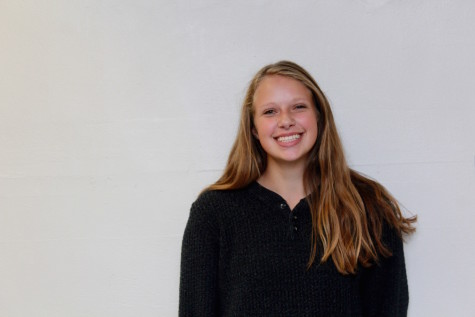Genetic Testing: why the choice to get tested is a big one
Before she lost two sisters to ALS, Mary Roose had already decided she wouldn’t get genetic testing for the disease in a quaint exam room at her doctor’s office. She had been asking about testing for Alzheimer’s, but the answer her doctor gave her changed her mind almost indefinitely. Her doctor told her to do the things she would have done if she found out she had the disease anyways. “I thought, you know, what difference would it make if I knew what was ahead of me or not? I’ll just live my life intentionally, the way I want to live it,” Roose said.
Despite Roose’s revelation, there are still many factors to take into account when thinking about genetic testing. Roose’s decision on testing has a wider range of effects than just her state of mind. Mary Roose has four adult children, three of which are genetically related to her. Since Familial ALS runs in Roose’s family, she has a 50 percent chance of inheriting the disease, and if she carries the mutation, all of her children also have a 50 percent chance of having it, and so on. If she were to get the test, she could potentially answer a lot of questions for her kids. Roose is skeptical that the test would answer those questions, and she doesn’t think her kids need her to get the test anyways. But, children still have a big impact on the choice to get tested.
Elizabeth Jeffords, Mary Roose’s daughter, has gotten tested for a rare genetic disease before, but under different circumstances, and she doesn’t feel the need to get tested for ALS. Jeffords had a toddler when she was tested for Ehlers-Danlos syndrome, a rare group of inherited disorders, and wanted all of the available information, because the prognosis for the disease is usually a very short life. Jeffords needed to know not for her sake, but for the sake of her young child. Today, however, that child is a teenager, and Jeffords doesn’t feel the same responsibility. “If I were to get sick now it would be sad, but we would still have a few years together and Audrey would land on her feet. If I were to have gotten sick when she were six, things would be a lot different,” Jeffords said.
Both women would, however, feel differently if there was another disease in question. There isn’t any sort of cure for ALS, and the average survival time after diagnosis is three years. Diseases like cancer, however, have treatment methods. “Anything that’s treatable or could be surgically corrected, yes I’d want to know. If I had the same number of relatives that had, say, breast cancer, and it was a genetic predisposition, yes I would want to know that, and I would have the testing for that,” Roose said. Jeffords would also want to know if she had a different disease, in order to take preventative measures.
Both Roose and Jeffords are adults, and are content with their lives. The answer to the question of genetic testing is different for high school student Brynn Stellrecht. “I’d want to know [if I had a disease] so that I could do as many of the things that I wanted to do as possible, and experience the world, so I didn’t have as many regrets,” Stellrecht said. Stellrecht is significantly younger than Roose and Jeffords, and hasn’t had as much time to experience the world around her. Her opinion on getting genetic testing is quite possibly based on her age, as are the opinions of Roose and Jeffords.
 Genetic testing is a complex and enticing issue. The choice to get tested is a big one, and there is a lot to take into account when considering it. But in the end, Roose believes that life is to be enjoyed, disease or not. “There’s always a chance you will have the disease,” Roose said “but even if you do have it, that life is still important, even if it’s shortened,”
Genetic testing is a complex and enticing issue. The choice to get tested is a big one, and there is a lot to take into account when considering it. But in the end, Roose believes that life is to be enjoyed, disease or not. “There’s always a chance you will have the disease,” Roose said “but even if you do have it, that life is still important, even if it’s shortened,”









